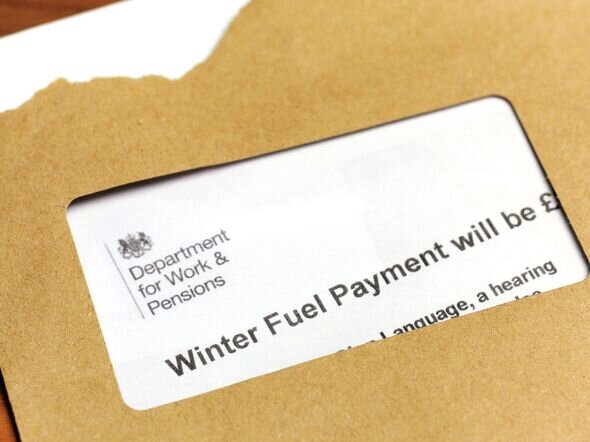Let’s Break This Down Together...
HMRC’s security checks can feel confusing at first. But they’re simply there to keep your tax refund safe.
In this article, we walk through why these checks happen and how the process works. You’ll learn what triggers them and what documents you may need.
By understanding the steps, you can respond confidently and avoid delays to your refund. Let’s dive in.
Why HMRC Verifies Tax Refunds
HMRC’s security checks are essential safeguards that protect millions of taxpayers from refund fraud. These verification procedures help ensure only legitimate claims are processed. The most common reasons HMRC conducts security checks include incomplete or inaccurate information, unusual claims, or inconsistencies in your Self-Assessment tax return.
While they might seem intrusive, these checks are standard practice for HMRC to prevent and detect potential fraud. One of the main goals of these checks is to identify suspicious activity and ensure the authenticity of tax claims. Understanding the process can help you navigate it smoothly and receive your refund faster.
Types of Security Checks
HMRC conducts several types of security checks to ensure the accuracy and legitimacy of self assessment tax returns. These checks are designed to protect both taxpayers and the UK tax system from errors and fraud. One common type is identity verification, where HMRC cross-references your details with government records or credit agencies to confirm you are who you say you are.
Another is income verification, which involves checking the declared income on your self assessment tax return against information from employers, banks, or other sources. Random audits are also part of HMRC’s approach these are carried out on a selection of tax returns each year to assess overall tax compliance and spot-check for any discrepancies.
By understanding the different types of security checks HMRC conducts, taxpayers can better prepare for any requests and respond confidently if their tax return is selected for review.

How HMRC Security Checks Work for Tax Refunds
HMRC uses both automated and manual systems to verify the legitimacy of tax refund claims. HMRC's security checks may apply to both automatic and requested repayments, and additional checks may be triggered for certain repayment claims to prevent fraud and ensure the accuracy of every tax repayment. These checks aren’t meant to delay your money, they’re designed to protect both you and the public purse from fraud.
The verification system flags unusual patterns, large refund amounts, large or unusual tax repayments or repayment claims, or claims that don’t match your previous tax history. Most routine repayments sail through these checks without any delays, but some legitimate repayment claims might need extra verification and be subject to additional checks.
If your repayment is selected for review, HMRC will contact you directly with clear instructions about what you need to provide. These procedures are part of HMRC's security checks to ensure the legitimacy of every tax repayment.
What Triggers a Security Check?
HMRC decides to initiate checks based on certain risk factors, such as inconsistencies or unusual patterns in tax returns.
First-time refund claims often face additional scrutiny as there’s no previous history to compare against. Significant changes in your income or work circumstances compared to previous years might raise flags in the system.
Claims that seem unusual for your profession or industry can trigger verification, especially for self-employed workers and self employed individuals, who are often subject to additional scrutiny by HM Revenue and Customs. HMRC checks may focus on record-keeping, digital bookkeeping requirements, and patterns like large discrepancies or cash-heavy industries.
Multiple amendments to your tax return within a short period might suggest uncertainty that HMRC wants to clarify.
Random checks also happen regardless of your circumstances, these HMRC checks are conducted by HM Revenue and Customs as part of their compliance efforts to ensure tax compliance.
The Verification Process Timeline
The initial automated risk assessment happens within HMRC’s systems and requires no action from you. If selected for verification, you’ll receive a letter or message in your tax account asking for specific information, including the deadline by which you must respond.
HMRC typically aims to complete security checks within 30-60 days, and statistics show that the majority of checks are completed within this timeframe. It is important to respond by the deadline specified in HMRC’s letter or message, as the date of your response can affect how quickly your refund is processed. Complex cases may take longer.
Checking your refund status regularly through your online tax account can help ease anxiety during this waiting period.

Documents You Might Need to Provide
Photo identification such as your passport or driving licence is commonly requested to confirm your identity. Proof of address through utility bills or council tax statements helps verify you’re the person entitled to the refund. As part of the verification process, HMRC may ask for specific requested documents to support your claim.
Employment records including P60s and payslips may be needed to confirm income details you’ve submitted. For self-employed claims, business receipts, invoices, and bank statements showing work-related transactions are vital. Keeping accurate records ensures you can quickly provide any requested documents if HMRC asks for further information.
Small businesses, in particular, should maintain thorough documentation and accurate records to avoid delays during HMRC checks and to ensure compliance with tax regulations.
Always send copies rather than original documents, and only send exactly what HMRC has requested.
Responding to HMRC's Verification Requests
When HMRC contacts you regarding your tax return, it is important to know how to respond and what steps to take. Reply promptly to HMRC's requests to avoid non compliance, as delays in your response can lead to penalties and extend the time until you receive your refund. HMRC will notify you if additional information or documents are needed, so always check for official communications.
Be thorough but precise – provide exactly what’s been asked for without sending unnecessary extra documentation.
Keep copies of everything you submit and note when and how you sent it for your own records. If you haven’t heard back within the timeframe HMRC provided, it’s perfectly fine to follow up with a polite enquiry. If you have any questions or issues, contact HMRC directly for clarification or assistance.
Using HMRC’s online services rather than post can speed up the verification process considerably.
Resolving Issues with HMRC
If you find yourself disagreeing with HMRC’s findings or facing issues with your self assessment tax return, there are clear steps you can take to resolve the situation. Start by contacting HMRC directly to discuss your concerns, having your documentation and evidence ready can help clarify your position and support your claim.
If the process feels overwhelming, seeking professional advice from a tax adviser or accountant can make a big difference, especially when dealing with complex income or assessment tax return issues. Sometimes, HMRC may request additional information to verify your identity or income; responding promptly and thoroughly to these requests can help resolve matters quickly and avoid unnecessary scrutiny.
You can also use HMRC’s online services to track the progress of your tax return and respond to any new requests efficiently. Taking a proactive approach and keeping communication open with HMRC is the best way to resolve issues and ensure your tax affairs are in order.

Spotting Refund Scams
Genuine HMRC communications about refunds never ask for your personal or banking details via email or text. Official HMRC letters include your Unique Taxpayer Reference (UTR) or National Insurance number.
HMRC will only pay refunds into the bank account you've previously nominated in your tax account. If you're suspicious about any communication claiming to be from HMRC, forward it to phishing@hmrc.gov.uk.
When in doubt, log into your official HMRC account directly (not via links in emails) to check for genuine messages.
Best Practices for Taxpayers
To minimise the risk of unnecessary scrutiny and ensure your self assessment tax return is processed smoothly, it’s important to follow some best practices. Keep accurate and complete records of all your income and expenses throughout the tax year, including receipts, invoices, and bank statements. Before submitting your tax return, double check all the information for errors or omissions small mistakes can trigger security checks or delay your refund.
If HMRC requests additional documentation, respond promptly and provide exactly what’s needed. Using tax software or consulting a tax adviser can help you prepare and submit your assessment tax return with confidence, reducing the risk of red flags.
Regularly reviewing and updating your tax records not only helps with compliance but also makes it easier to spot and address any potential issues before they become a problem. By staying organised and proactive, you can help ensure your tax return is accurate, compliant, and less likely to attract additional security checks from HMRC.
A Lesson Learned
Last year, I received an official-looking email promising a substantial tax refund. The sender knew my name and claimed to be from HMRC. Something felt off about the urgent tone and request for bank details.
I logged directly into my HMRC account instead of clicking their link. No refund was pending. That five-minute check saved me from what was clearly a sophisticated phishing attempt targeting taxpayers.
Final Thoughts
HMRC's security checks are a necessary part of the tax refund process that protects everyone from fraud. While waiting for verification might feel frustrating, responding quickly and accurately to any requests will help speed things along.
Keep good records of all your tax-related documents throughout the year to make verification easier if it happens. Remember that genuine refunds are worth waiting for these checks ensure you get what you're entitled to while keeping the system fair.











